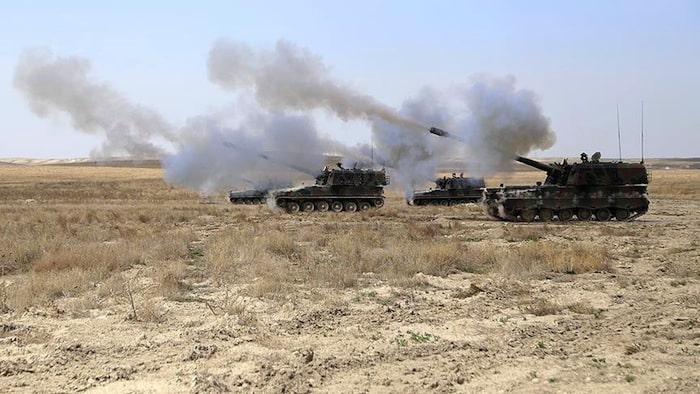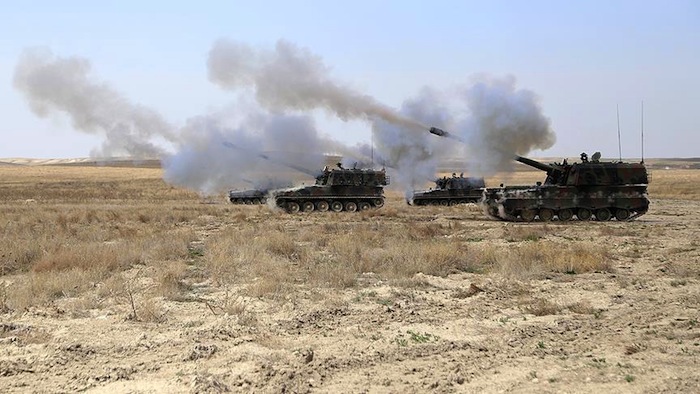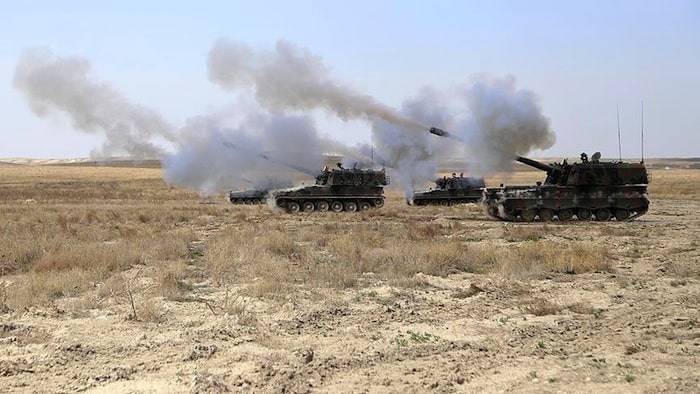

The violence in Syria has been devastating for years. New military actions in the country by the Turkish government threaten to escalate the situation into a much larger war.
Ron Paul Institute for Peace and Prosperity Executive Director Daniel McAdams wrote about the most recent developments in the RPI Weekly Update sent out via email early this morning. Because of the great importance of sharing McAdams’ Syria comments with the largest audience possible, those comments from this morning’s email are posted below as well.
If you do not receive the RPI Weekly Update, you can subscribe for free here.
Here is what McAdams wrote in the portion of the RPI Weekly Update concerning Syria:
Dr. Paul and I started the week with a Liberty Report episode noting that Saudi Arabia had announced that it was putting together a force of 150,000 to invade Syria and “fight ISIS.” In the program we noted that it seemed odd for Saudi Arabia to be suddenly so interested in fighting Islamist extremists considering they had been funding and exporting them into Syria for the past five years. In fact, we pointed out, the Saudi invasion plan (troublingly encouraged by Secretary of Defense Ashton Carter) was more likely a response to major gains against ISIS and particularly al-Qaeda’s Nusra Front by the Russia and Iran backed Syrian army around Syria’s second city, Aleppo. Aleppo had been occupied for at least three years by largely foreign imported al-Qaeda fighters, but dramatic gains by the Syrian government in the past weeks — with Russian help in the skies and Iranian and Lebanese help on the ground — had that last major rebel-occupied city in west Syria teetering on the edge of liberation. So the idea that Saudi Arabia would invade Syria to fight the very groups it had supported against the Syrian government was a bit much to swallow. Nevertheless, as this update goes to press, Saudi warplanes and personnel are amassing in Turkey poised to invade Syria.
But it was Turkey’s dramatic moves on Saturday that led us to wonder whether the first shots of World War III had been fired. As often happens in world-changing events, the Turkish artillery attack on Syria juggles around alliances and partnerships in a dizzying fashion. On Saturday the Turks began shelling Kurdish People’s Protection Units (YPG) forces inside Syria at a military base the Kurds had just liberated from ISIS occupation. The US has long supported the YPG, considering them critical “boots on the ground” against ISIS. So Washington’s NATO ally Turkey on Saturday attacked Washington-backed forces in Syria fighting against ISIS. Additionally, Turkey launched an artillery attack on Saturday against Syrian government forces inside Syria who were fighting alongside Iranian and Lebanese forces with Russian air support. The Turkish direct attack on Syrian government forces inside Syria is an escalation so dramatic that even the US government went on record requesting that the Turks immediately cease firing on US-backed anti-ISIS forces. The French also requested that their Turkish NATO allies cease and desist from attacking Syria. Germany’s Angela Merkel has taken a very different tack thus far when it comes to Turkey, but as full scale war possibly including NATO and Russia looms it remains to be seen how longer Merkel will back Turkish regime-change policy in Syria.
What is the endgame in Syria? Washington seems unable to break the hold over its Syria policy by Saudi Arabia, Turkey, the Gulf States, and Israel, even as it looks like a successful regime-change policy in Syria will leave the country looking far more like Libya than Switzerland. Literally none of the opposition groups supported by the US and its allies desire a future Syria as a secular, democratic state.
If anyone wants to see the horrific disaster of US interventionism, Syria is the latest poster child. But you will not likely see the truth about the unfolding disaster in your mainstream media. That is why we are so grateful that you turn to the Ron Paul Institute for your information.

